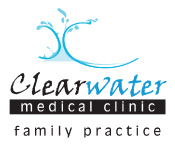Keep YOUR Heart Healthy!
Take steps today to lower your risk of heart disease. Heart disease is the leading cause of death for both men and women in the United States.
To help prevent heart disease, you can:
* Eat healthy.
* Get active.
* Stay at a healthy weight.
* Quit smoking and stay away from secondhand smoke.
* Control your cholesterol and blood pressure.
* If you drink alcohol, drink only in moderation.
* Manage stress.
You are at higher risk for heart disease if you:
* Have high cholesterol or high blood pressure
* Smoke
* Are overweight or obese
* Don’t get enough physical activity
* Don’t eat a healthy diet
Your age and family history also affect your risk for heart disease. Your risk is higher if:
* You are a woman over age 55
* You are a man over age 45
* Your father or brother had heart disease before age 55
* Your mother or sister had heart disease before age 65
What is heart disease?
When people talk about heart disease, they are usually talking about coronary heart disease (CHD). It’s also called coronary artery disease (CAD). This is the most common type of heart disease.
When someone has CHD, the coronary arteries (tubes) that take blood to the heart are narrow or blocked. This happens when cholesterol and fatty material, called plaque (“plak”), build up inside the arteries.
Plaque is caused by:
* Too much fat and cholesterol in the blood
* High blood pressure
* Smoking
* Too much sugar in the blood (usually because of diabetes)
When plaque blocks an artery, it’s hard for blood to flow to the heart. A blocked artery can cause chest pain or a heart attack.
Don’t ignore changes in how you feel.
Signs of a heart attack often come on suddenly. But sometimes, they develop slowly – hours, days, or even weeks before a heart attack happens.
Talk to your doctor if you feel unusually tired for several days, or if you develop any new health problems (like pain or trouble breathing). It’s also important to talk to your doctor if existing health issues (like pain) are bothering you more than usual.
If you’ve had a heart attack in the past, it’s important to know that symptoms of a new heart attack might be different from your last one – so talk with your doctor if you have any concerns about how you feel.
Call 911 right away if you or someone else has signs of a heart attack.
Control your cholesterol and blood pressure.
High cholesterol and high blood pressure can cause heart disease and heart attack. If your cholesterol or blood pressure numbers are high, you can take steps to lower them.
All men age 35 and older need to get their cholesterol checked. You also need to get your cholesterol checked if you have heart disease or risk factors for heart disease and you are a:
* Man ages 20 to 35
* Woman age 20 or older
Get your blood pressure checked. Starting at age 18, get your blood pressure checked regularly. High blood pressure has no signs or symptoms.
Know your family’s health history. Your family history affects your risk for heart disease.
Ask your doctor about taking aspirin every day.
If you are age 50 to 59, taking aspirin every day can lower your risk of heart attack and stroke – but it’s not recommended for everyone.
Eat healthy. Eating healthy can help lower your risk of heart disease. A heart-healthy diet includes foods that are low in saturated and trans fats, added sugars, and sodium (salt).
Heart-healthy items include high-fiber foods (whole grains, fruits, and vegetables) and certain fats (like the fats in olive oil and fish).
Drink alcohol only in moderation. If you choose to drink alcohol, drink only in moderation. This means limiting your drinking to no more than 1 drink a day for woman and no more than 2 drinks a day for men. Drinking too much alcohol can increase your risk of heart disease.
Get active. Getting active can help prevent heart disease. Adults need at least 2 hours and 30 minutes of moderate aerobic activity each week. This includes walking fast, dancing, and biking.
If you are just getting started, try walking for 10 minutes a day, a few days each week. Then add more activity over time.
Stay at a healthy weight.
People who are overweight or obese are at an increased risk for heart disease, high blood pressure, and type 2 diabetes. If you are overweight or obese, losing just 10 pounds can lower your risk of heart disease
Quit smoking and stay away from secondhand smoke. Quitting smoking helps lower your risk of heart disease and heart attack. Call 1-800-QUIT-NOW (1-800-784-8669) for free support and to set up your plan for quitting.
Avoiding secondhand smoke is important, too – so keep your home smoke-free. If you have guests who smoke, ask them to smoke outside.
Manage stress. Managing stress can help prevent serious health problems like heart disease, depression, and high blood pressure. Deep breathing and meditation are good ways to relax and manage stress.

